15 Non-Academic Project Management Books to Earn PDUs
This blog is reader-supported. When you purchase something through an affiliate link on this site, I may earn some coffee money. Thanks! Learn more.
Read our review guidelines.
You can earn PDUs (professional development units) for ongoing certification renewal, such as for the Project Management Professional (PMP)®, from reading.
And you probably know that because you’re here looking for some
In this article, I’m saving you some time by highlighting 15 of my recommended books for PDUs, but first, let’s cover off some details about using reading. Use the table of contents to skip to the books if you already know this part!
What books qualify for PDUs?
Pretty much any books on project management qualify, as long as you can show that what you have learned from them matches up to the PMI Talent Triangle, or the equivalent competency framework for your professional body if it is another project management association.
Reading is a fast way to earn PDUs but it needs to be relevant to the certification you hold. Skim through the exam content outline to remind yourself of the core topics covered by your certification.
Books that cover ways of working, technical project management, leadership, power skills, soft skills for the workplace, business acumen and also strategic and business management topics count. That’s pretty much everything from ‘how to do this detailed task’ through to ‘how to run a portfolio office’.
So whatever stage of your career you are at, you’ll find something to read that is interesting and relevant.
How many PDUs can you get for reading?
The requirements for earning PDUs are set out in PMI’s Continuing Certification Requirements handbook. Self-directed reading is part of the Education section and books can fall into any of the Talent Triangle areas.
One hour of reading equals one
Depending on what certification you are keeping up to date, you’ll have different Education requirements. The table below sets out the minimum Education PDUs required for the different Project Management Institute certifications.
Education PDUs – Minimum Talent Triangle Requirements
| Certification and Education Minimum PDUs | Ways of Working PDUs Required | Power Skills PDUs Required | Business Acumen PDUs Required | Remaining PDUs in any area of Talent Triangle |
|---|---|---|---|---|
| PMP – 35 | 8 | 8 | 8 | 11 |
| PgMP – 35 | 8 | 8 | 8 | 11 |
| PfMP – 35 | 8 | 8 | 8 | 11 |
| PMI-PBA – 35 | 8 | 8 | 8 | 11 |
| PMI-ACP – 18 | 4 | 4 | 4 | 6 |
| PMI-RMP – 18 | 4 | 4 | 4 | 6 |
| PMI-SP – 18 | 4 | 4 | 4 | 6 |
| CAPM – 9 | 2 | 2 | 2 | 3 |
If you are working towards collecting PDUs for CAPM recertification, then note that you really don’t need that many hours. You can get away with reading a few chapters of a book to claim your hours in the relevant section.
How to claim PDUs for reading
You can claim PDUS for reading by logging them in the PMI CCRS or your professional body’s equivalent record system.
The important thing to remember is that when you are reading, take notes! If your recertification application is audited, you’ll need to provide evidence that you did actually read the book.
Record the dates you read, how much you read on each date, and some key takeaways about what you learned. Much like my children’s reading journals for school?
OK, let’s get on with the list of books that count for
I’ve also added a suggested
Ways of Working Books
The Ways of Working category used to be called Technical Project Management, and this is where you’ll find all the ‘how to’ guides that teach you how to get the job done.
Note: I personally don’t think you can claim reading the Project Management Body of Knowledge (PMBOK® Guide) towards your PDUs. You should have read it already when you were preparing for the exam, and I know you might want to dip in and out regardless afterward. Also, there are so many better, more interesting, less boring books!
The Project Manager and the Pyramid
Author: David Hinde.
The Project Manager and the Pyramid is a parable that tells the story of Brian, a modern-day project manager who has to go and manage the building of the Great Pyramid in Egypt. It covers the basics of project management in an easy-to-grasp narrative.
I’m not normally a fan of business lessons told through stories but this one is not cringey. It includes key learning points from each chapter and (in case you need it spelled out) how to translate the skills to the modern world.
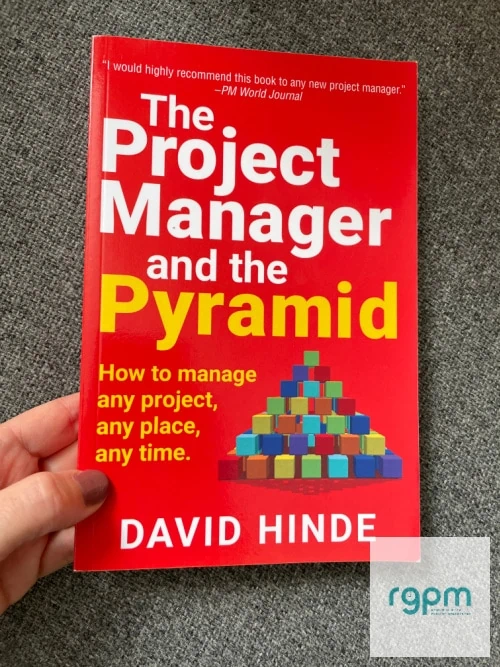
Retrospective Antipatterns
Author: Aino Vonge Corry.
Retrospective Antipatterns is a great book for those in agile project management – especially if you’ve read all the classics. It looks at 24 reasons why retrospectives fail and what you can do differently to ensure your retros are worthwhile.
Full of stories and tips, this is one you’ll want to return to again and again.
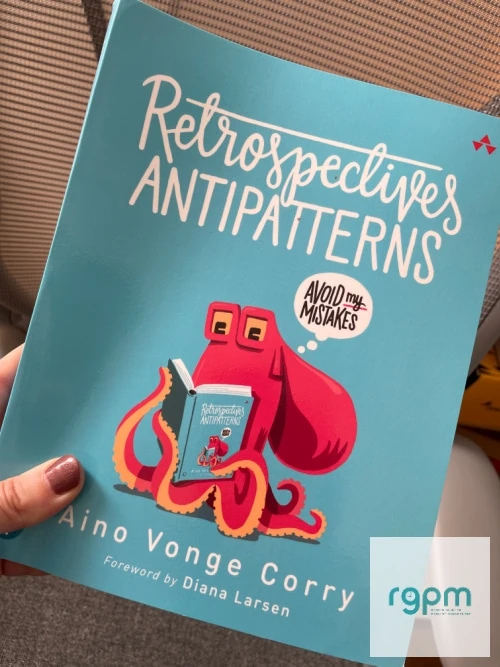
Identifying and Managing Project Risk (4th Ed)
Author: Tom Kendrick.
Identifying and Managing Project Risk is a big read at over 300 pages. There are some sections in it that cover enterprise risk management which you could justifiably claim in the Business Acumen section.
The book really does take you end-to-end through everything you need to do to spot and act on scope, schedule, resource risks and more.
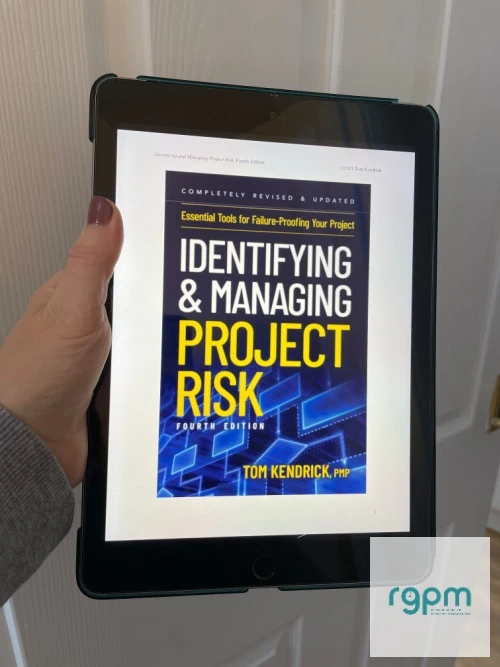
Making Risk Management Work (2nd Ed)
Authors: Ruth Murray-Webster and Penny Pullan.
Making Risk Management Work is a slim read but it’s full of tips for how to run effective risk management workshops. And more than that: getting people to own and manage risk instead of it landing at the feet of the project manager (you) to do instead!
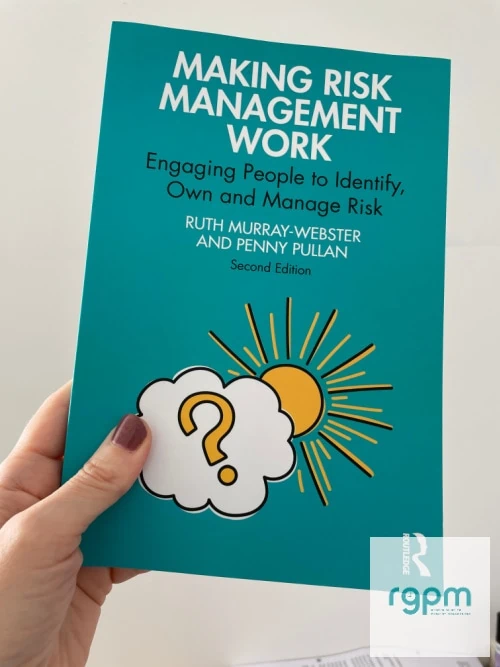
Managing Multiple Projects
Author: Elizabeth Harrin (yes, that’s me!).
Sorry, I felt like I had to include Managing Multiple Projects because it really will change the way you work, and that’s what the Ways of Working category is all about. Plus it comes with downloadable templates and loads of tips and tricks – not just from my experience but also from your peers.
If you are struggling to juggle your workload, this is the book to reach for first.
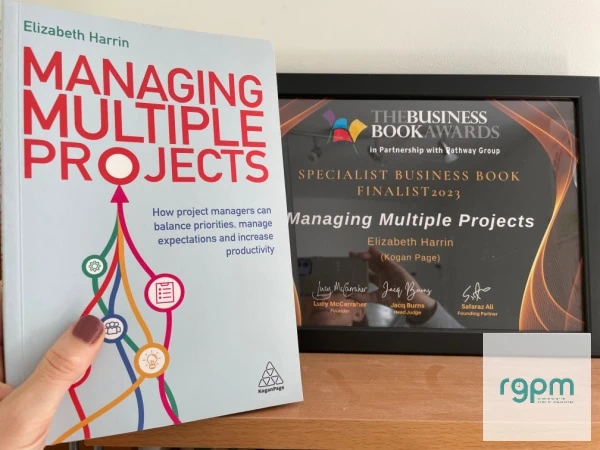
Power Skills Books
I love this category (which used to be Leadership) because it covers so much to do with teamwork, stakeholder engagement and all the interpersonal skills, which means you can justify so many books in it!
So many books fit into the Power Skills category of helping you improve your project management skills, so don’t be limited to only those aimed purely at project managers.
Project Management for Humans
Author: Brett Harned.
Project Management for Humans is a skinny book, but it’s packed full of tips for how to help people get things done. It focuses on the team aspects of project management, which is probably why I enjoyed it so much. Highly recommended!
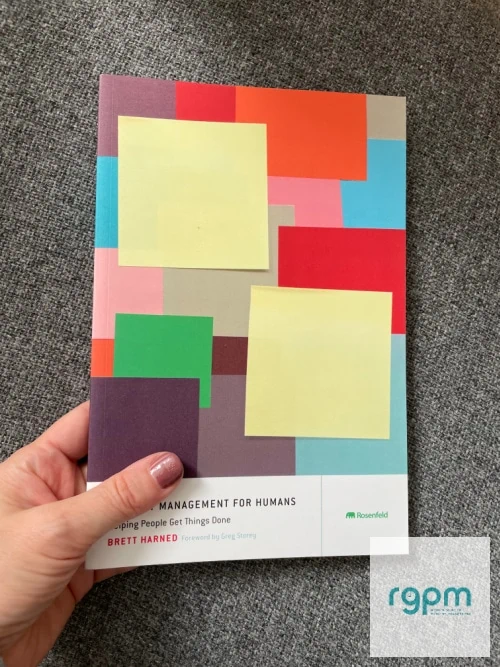
Be a Project Motivator
Author: Ruth Pearce.
Be a Project Motivator is perfect for people wanting to improve their team skills and create a culture of appreciation within their project team. It will teach you how to influence others, even when you are not directly managing them.
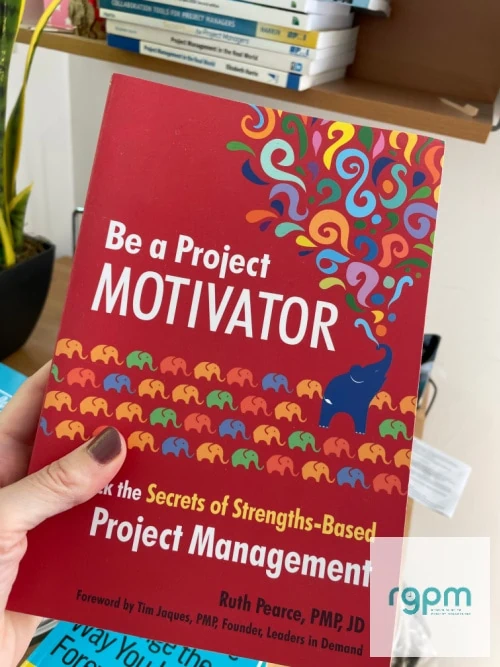
The Coaching Habit
Author: Michael Bungay Stanier.
The Coaching Habit is a short read, but I found it amazingly helpful in supporting colleagues and in my mentoring practice. I can’t say that I do a lot of ‘true’ coaching, but simply being able to ask the right questions (and the book tells you what they are) changes the way we have conversations. Great!
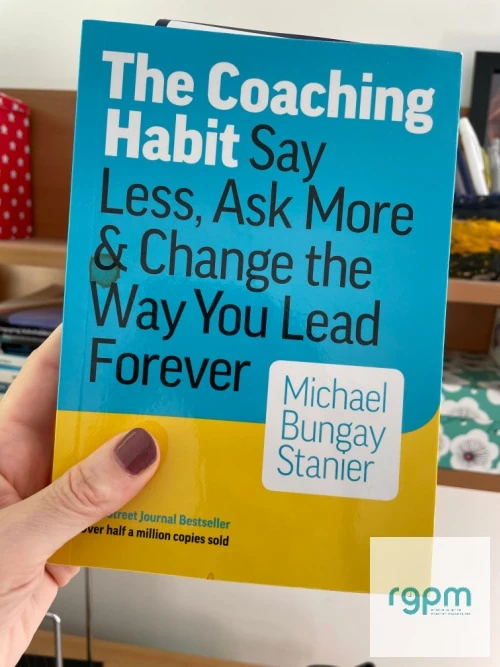
Engaging Stakeholders on Projects
Author: Elizabeth Harrin.
Engaging Stakeholders on Projects is another one of my books, but it definitely deserves its place in the list if I do say so myself!
I wrote it to answer the question: what does engagement mean, and how do I do it? Because we talk about stakeholder engagement as a buzzword and so often when I’m mentoring project managers, it’s clear that working with people is the area so many of us struggle with.
The book is published by APM (the cover in the photo is their old branding), but it’s relevant for PMI certifications too.
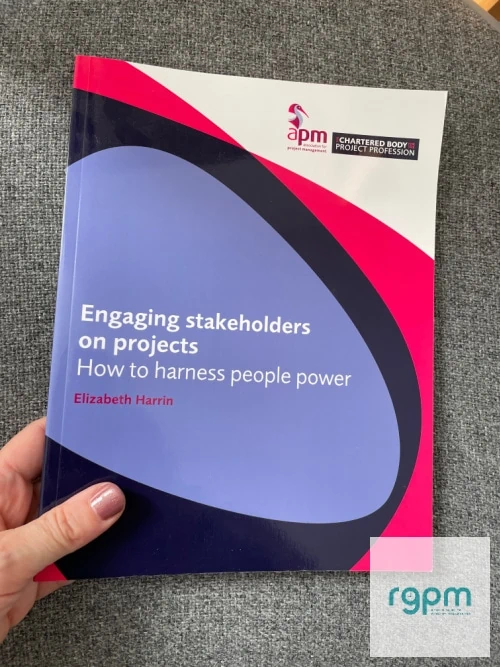
Emotional Intelligence for Project Managers (2nd Ed)
Author: Anthony Mersino.
Emotional Intelligence for Project Managers is one of my all-time favorite reads, and one that totally reshaped how I looked at managing work and relationships at work when I was but a young project manager.
Definitely worth a read.
Business Acumen Books
Business Acumen used to be called Strategic and Business Management in the Talent Triangle, which I think is a clearer definition of what section of the library to look for! Any books about achieving business goals, portfolio management, strategy execution or case-study driven books will count here.
Business Resilience
Authors: David Roberts, Islam Choudhury, Serhiy Kovela, Sheila Roberts, and Jawwad Tanvir.
Business Resilience is a longer read, but it’s a really interesting guide to how to make sustained progress at pace, whatever pace is appropriate to your organization. Basically, it’s about how not to be left behind.
Great for PMO leaders or those who want to shape the future of strategic delivery in their businesses, with lots of practical checklists and guidance.
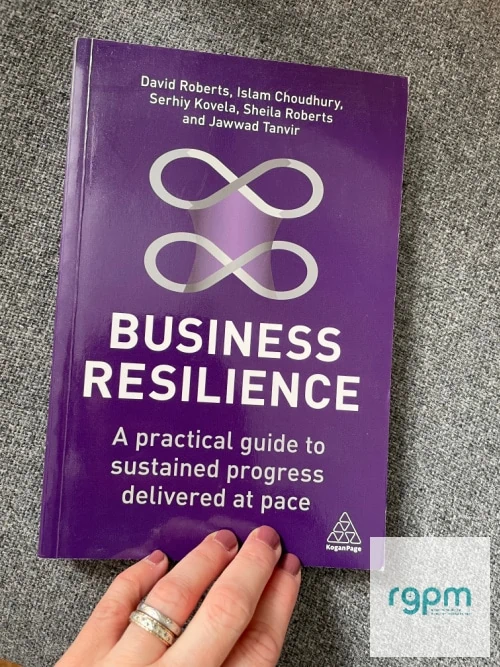
Driving Project, Program and Portfolio Success: The Sustainability Wheel
Authors: Rich Maltzman and David Shirley.
Driving Project, Program, and Portfolio Success is all about creating a sustainable culture. It was first published in 2016, so that makes it quite old as books go, but sustainability is something that is taking more of a hold (thankfully) in how we deliver projects. Therefore, it’s worth diving into this subject as it helped me have conversations with colleagues about sustainable project execution.
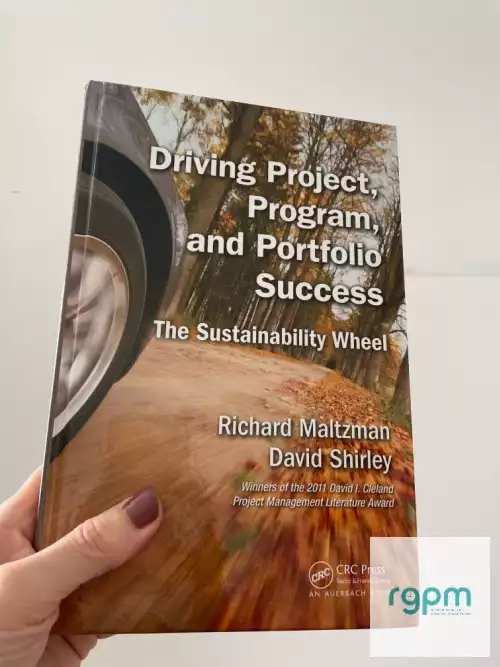
Good Charts
Author: Scott Berinato.
Good Charts is the HBR Guide to Making Smarter, More Persuasive Data Visualizations. It’s not a ‘pure’ project management book, but it’s completely relevant as it covers how to report data. And projects have so many reporting and data requirements.
It’s fascinating to see how the history of data visualization has changed and how you can shape conversations and business outcomes by the choices you make. Great reading for anyone in a PMO role or who wants to make their dashboards and project reports more influential.
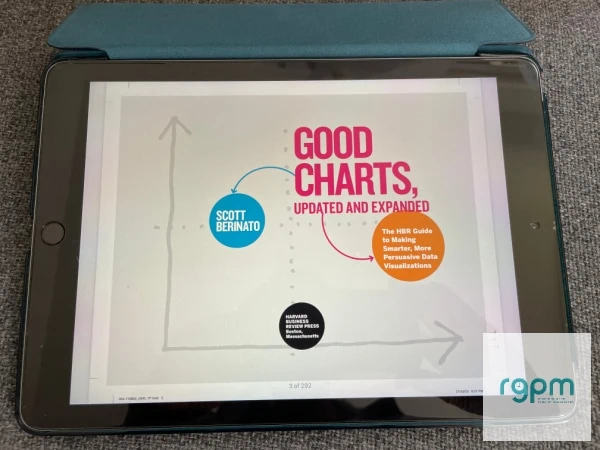
Harvard Business Review Project Management Handbook
Author: Antonio Nieto-Rodriguez.
HBR’s Project Management Handbook claims a place in the Business Acumen section because it’s not just about technical skills. The project canvas is a new way of thinking about how to launch, lead, and sponsor projects. It’s full of innovative approaches and project management principles that you’ll use over and over again.
I was impressed and took away some new techniques. There are some project management practices you’ll already be aware of, but there’s enough in here about how to deliver strategy to keep you turning the pages.
The Catalyst: How to change anyone’s mind
Author: Jonah Berger.
The Catalyst was a riveting read, and I still remember some of the stories now. It’s about influence and negotiation and how to get things done. All skills we need in project delivery, especially when it comes to influencing strategy and decision-making.
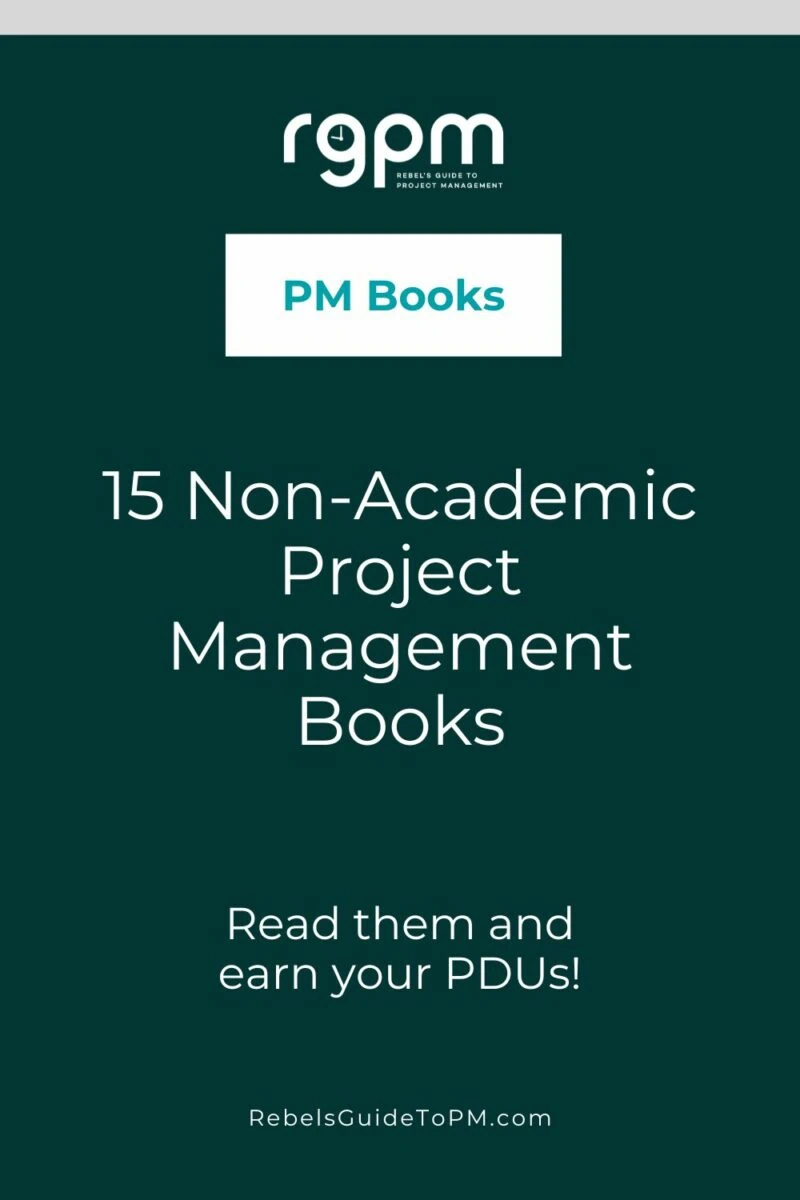
Where to get the books
Buying business books is expensive. There are other options. For example:
Set up a business book corner at work and have people donate books or buy them from office funds for everyone to share.
Get books from the library. My library doesn’t have a great business book selection, but they will order books in and they can get almost anything for a 50p reservation fee.
Get the audiobook. If you have an Audible account, you can choose a business book every month. Or set up an Audible account and download your first book free.
Get the ebook. Often print books are way more expensive than digital books. While I like a paper copy, I have moved to ebooks for some books over the years because it is easier and cheaper, and I can carry more around with me. Kindle Unlimited will give you access to loads of books and is the easiest way I know of to get free project management books to earn PDUs, although check what’s available to you in your location.
Next steps
Hopefully, that’s enough reading material to get you started! With these book recommendations for
Check out other easy ways to earn PDUs for more tips on how to collect your hours.
